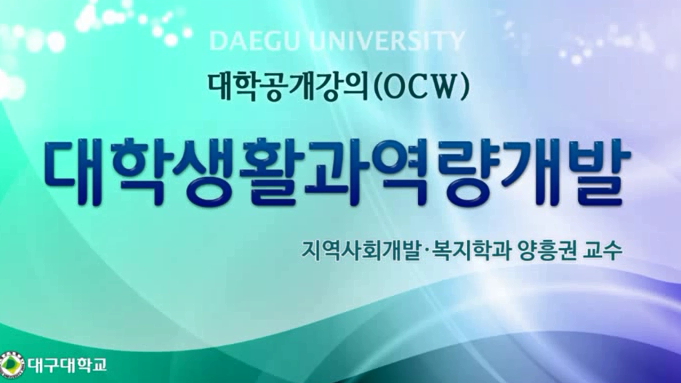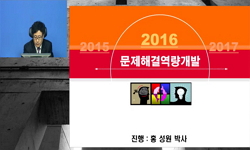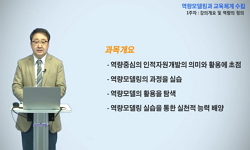본 연구는 지역사회 내 다양한 청소년들의 사회화를 위한 중요한 기능을 담당하 는 청소년시설의 기능 성장과 운영 활성화를 추동하는 핵심적 위치에 있는 관리 자로서의 시설운영자의 구...
http://chineseinput.net/에서 pinyin(병음)방식으로 중국어를 변환할 수 있습니다.
변환된 중국어를 복사하여 사용하시면 됩니다.
- 中文 을 입력하시려면 zhongwen을 입력하시고 space를누르시면됩니다.
- 北京 을 입력하시려면 beijing을 입력하시고 space를 누르시면 됩니다.
https://www.riss.kr/link?id=A106434876
- 저자
- 발행기관
- 학술지명
- 권호사항
-
발행연도
2019
-
작성언어
Korean
- 주제어
-
KDC
332
-
등재정보
KCI등재
-
자료형태
학술저널
-
수록면
27-52(26쪽)
- 제공처
-
0
상세조회 -
0
다운로드
부가정보
국문 초록 (Abstract)
본 연구는 지역사회 내 다양한 청소년들의 사회화를 위한 중요한 기능을 담당하 는 청소년시설의 기능 성장과 운영 활성화를 추동하는 핵심적 위치에 있는 관리 자로서의 시설운영자의 구체적인 역량을 개발하기 위한 기초자료를 제공하고자 Lucia와 Lepsinger(1999)의 새로운 역량모델개발 방법론(Starting from Socratch)을 활용하여 연구하였다. 연구결과, 청소년시설 운영자들은 빠르게 변화하는 경영환 경 속에서 위기를 극복하고 변화를 주도하는데 필요한 역량인 긍정적 사고와 원 칙준수, 윤리의식을 가장 중요하게 인식하고 있었다. 또한 조직원들을 잘 관리하 는 능력을 갖추는 것이 우선시되어야 한다는 사실을 확인할 수 있었다. 반면 상대 적으로 덜 중요하게 인식하고 있는 역량 중 카리스마, 주도성 역량은 청소년시설 운영자들에게 아주 중요한 역량으로 강조되어 왔으나 현대에 와서는 조직을 이끄 는 관리자는 합리적이고 협력적인 경영자를 더 원하고 있는 것으로 나타났다. 이 러한 변화는 인적자원에 대한 중요성과 함께 청소년시설의 생존을 좌우하는 중요 한 요소로 강조되고 있어 지도자 육성 및 개발, 지도자 권익 중시, 인정과 보상 등의 역량이 높은 것으로 나타나 인적자원관리에 대한 인식이 아주 강하다는 것 을 알 수 있었다. 한편 최근 들어 시설운영자들에게 겸손한 자세가 강조되고 있으 며 더불어 원칙준수, 윤리의식, 솔선수범 등과 같이 윤리의식의 중요성을 강조하 는 경영기법들이 매우 빠르게 확산되어 활용되고 있는 것으로 나타났다. 이와 같 은 청소년시설 운영자의 역량모델 구축은 향후 다양한 유형의 청소년시설을 위한 시설장의 역량 개발을 위한 도구로 활용될 수 있으며 나아가서는 청소년정책의 큰 축을 차지하는 청소년지도자에 대한 인적 자원 개발의 기초자료와 함께 청소 년활동정책의 발전과 지속가능한 사회발전에 기여할 수 있는 자료를 제공할 수 있을 것이다.
다국어 초록 (Multilingual Abstract)
The Purpose of this study is to develop a competency model of Youth Training Center directors. To effectively achieve this research objective, the research procedure was designed with 7 stages through using ‘methodology of development in a new compe...
The Purpose of this study is to develop a competency model of Youth Training Center directors. To effectively achieve this research objective, the research procedure was designed with 7 stages through using ‘methodology of development in a new competency model(Starting from Socratch)’by Lucia and Lepsinger(1999). According to the research, the operators of youth facilities recognized positive thinking, adherence to principles and ethics as the most important skills needed to overcome the crisis and lead change amid the rapidly changing business environment. It also confirmed that having the ability to manage members well should be a priority. On the other hand, while charisma and leadership skills among relatively less important skills have been emphasized as critical capabilities for youth facility operators, the organization's leading managers have been found to want more rational and cooperative managers. This change, as well as its importance to human resources, is emphasized as an important factor that determines the survival of youth facilities, showed a strong awareness of human resources management, as it showed that the ability to nurture and develop leaders, value their rights, and recognize and reward their human rights. Meanwhile, it has been shown that humble attitude has been emphasized to facility operators recently, and management techniques such as adherence to principles, ethics, and initiative have spread and are being utilized very quickly. Building such capacity models for youth facility operators can be used as a tool for the development of facilities for various types of youth facilities in the future, while providing basic data on the development of human resources for youth leaders who constitute a major pillar of youth policy, as well as data that can contribute to the development and sustainable social development of youth activity policies.
목차 (Table of Contents)
- 국문초록
- Ⅰ. 서론
- Ⅱ. 이론적 고찰
- 1. 청소년시설 운영자의 역할
- 2. 청소년시설 운영자의 역량
- 국문초록
- Ⅰ. 서론
- Ⅱ. 이론적 고찰
- 1. 청소년시설 운영자의 역할
- 2. 청소년시설 운영자의 역량
- 3. 청소년시설 운영자의 역량모델링
- Ⅲ. 연구방법
- 1. 청소년시설장 역량모델링 절차
- 2. 연구대상 선정
- 3. 행동사건 인터뷰
- 4. 인터뷰 결과 전사 및 역량도출
- 5. 역량의 구조화
- 6. 타당성 검증
- 7. 역량모델 중요도 검증
- Ⅳ. 연구결과
- 1. 연구대상자 특성
- 2. 청소년시설 운영자 역량 도출
- 3. 청소년수련관장 역량 구조화
- Ⅴ. 결론
- 참고문헌
- Abstract
동일학술지(권/호) 다른 논문
-
대학생이 다문화멘토링에서 경험하는 다문화수용성에 관한 질적연구
- 다문화아동청소년연구원
- 송원일
- 2019
- KCI등재
-
- 다문화아동청소년연구원
- 이윤주
- 2019
- KCI등재





 eArticle
eArticle






